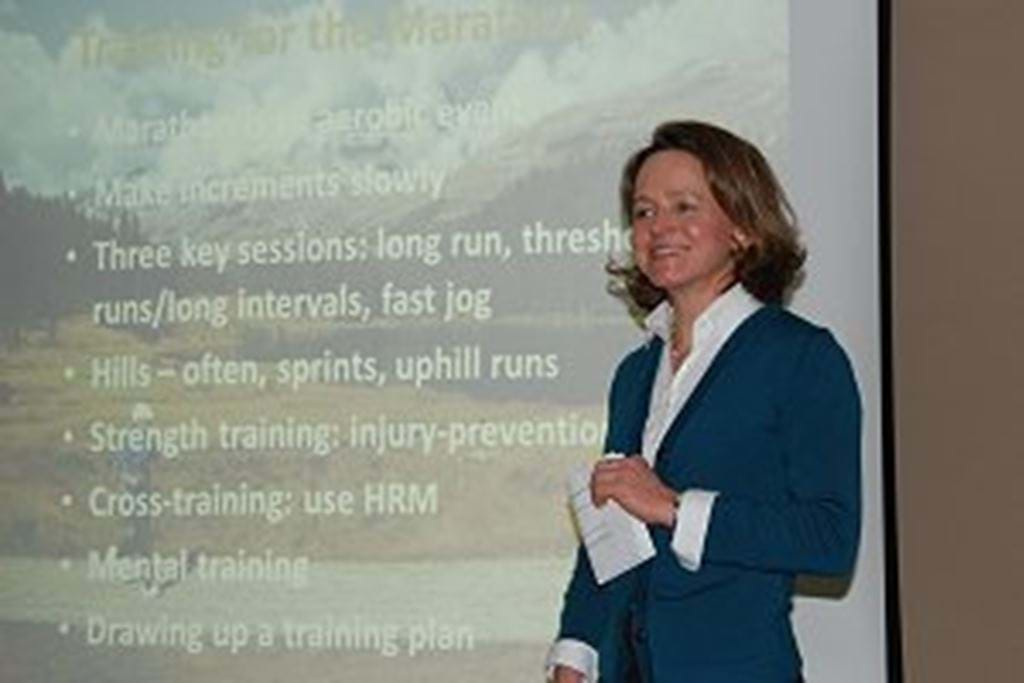Preparing for a Spring Marathon - Mara's blog
01 February 2015

1st February marks exactly twelve weeks until the UK’s flagship marathon, the Virgin Money London Marathon. As Dave Bedford, former Race Director and 10,000m world record holder proudly says, "It’s the greatest marathon race in the world!"
Many runners will be starting their marathon preparations in earnest now, so whether you’re running London or another Spring marathon, the serious training starts now! I’ve run London six times, and what an epic race it is – terrific crowds, more than 30,000 runners giving it their all, and the fastest elite athletes on the planet fighting it out for glory.
Looking back at the times I’ve pounded the streets of London over 26.2 miles, there are a few really crucial things that stand out when it comes to preparing for a marathon. If you’re building up to a Spring marathon, make sure you keep these important points in mind.
1. You should by now have a training plan. What suits you will differ from what works for someone else. The key is completing your training consistently week in, week out, which will lead to improvement over time. If your training plan is too hard to maintain consistently, the risk of injury or illness will be high. It’s better to under-train and feel you’re running within yourself, rather than to over-do it and break down. If you don’t yet have a plan, it’s a good idea seek the support of a qualified Coach or Group Leader to help you with your preparation.
2. Fuelling your training properly with a good diet is essential. That means eating or drinking something (ideally a recovery drink) within 20 minutes of training; eating a wide variety of different foods; targeting nutrient-rich foods such as colourful and leafy vegetables, oily fish, nuts and seeds; and remembering to drink throughout the day to stay well-hydrated.
3. Getting enough rest and sleep goes without saying, but this is perhaps the single most important aspect of marathon preparation, even more so than training. This is because it is our bodies’ adaptations in response to the stimulus of training that make us run faster, not the training itself. Resting and sleeping enable our bodies to adapt and become fitter. If you have a busy job or family commitments, it’s even more important to be disciplined about getting the rest and sleep you need.
4. Injuries often crop up in marathon training, and are the bane of all runners’ lives. But there are some simple steps you can take to minimise this risk. Get to know, and listen to your body – pain is your body’s way of telling you something is up so listen carefully. Take care of yourself with, for example, foam rolling, stretching, icing any soreness, and avoiding unsuitable or painful footwear. Your Coach or Group Leader will be able to help you with this.
5. When race day approaches, planning ahead and being organised is the key to an enjoyable marathon experience. So for example, decide and practise what you will eat and drink before, during and after the race; ‘wear in’ your race shoes and clothing in good time; do everything you can to avoid wasting mental energy by getting nervous or worrying about things you can’t control; and decide on a plan for your marathon (and a plan B in case circumstances on race day call for it).
There’s no doubt, preparing for a marathon is tough. But you can make it fun and enjoyable by training with other runners. If you don’t have friends, family or colleagues to train with, why not join a Run England group? And if you want to take up the challenge of running a Spring Marathon but haven’t yet entered a race, there are still places available at the ASICS Greater Manchester Marathon on 19 April 2015.
Photo with kind permission of Jake Waldron
More news from RunTogether




